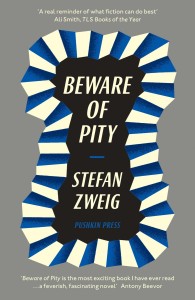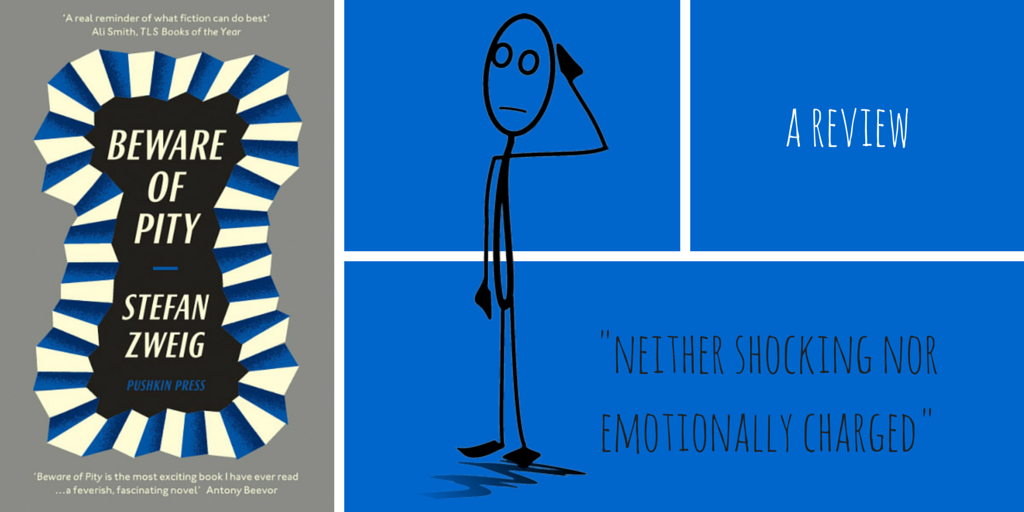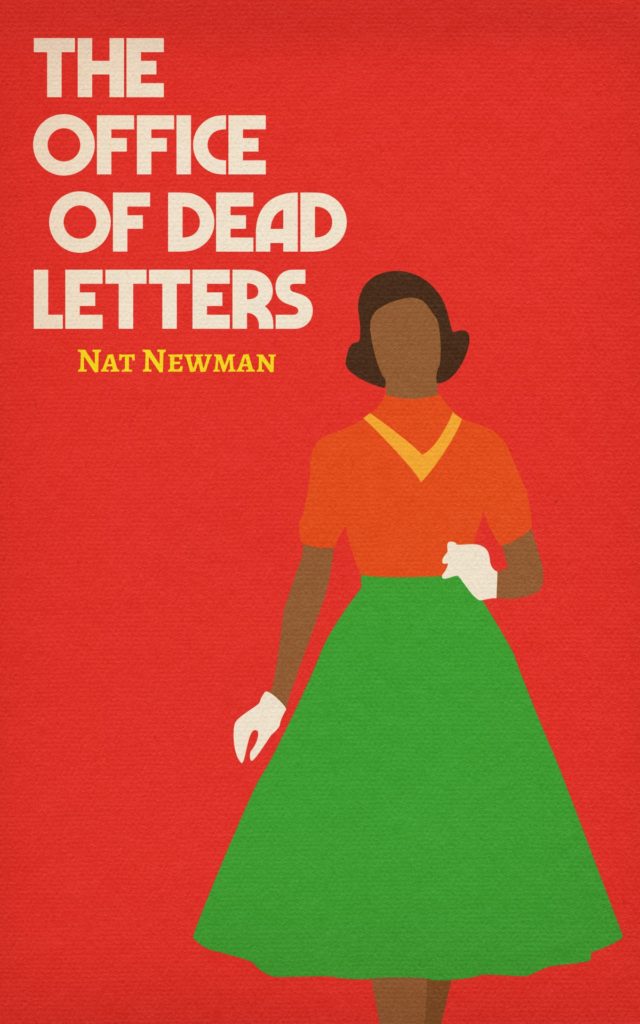Beware of Pity – Stefan Zweig
Pushkin Press (July 13, 2011)
Review: Zweig’s masterpiece is ultimately over-long and rather pointless.
It is just before the outbreak of World War I and young Austrian officer Anton Hofmiller is stationed at a Hungarian outpost. He befriends a local rich family, the Kekesfalvas, and through a series of emotional blunders and poor choices he becomes embroiled in their dramas and sorrows and is, eventually, the catalyst for disaster.
 Edith Kekesfalva, the daughter, suffers from some unknown disability, and she is incredibly unlikable; her sense of entrapment, her youth, her hatred of the pitiable glances cast her way, and her privilege combine to make her both hysterical and a tyrant. Hofmiller is a nice guy but misguided. In later years he realises that all the trouble started because he felt pity toward Edith. Perhaps if he’d had a more useful feeling – friendship or compassion – he could have avoided catastrophe. His visits to her are motivated by his desire to feel superior and needed. And so it is no surprise that he commits blunder after blunder. Hence, the title of the book
Edith Kekesfalva, the daughter, suffers from some unknown disability, and she is incredibly unlikable; her sense of entrapment, her youth, her hatred of the pitiable glances cast her way, and her privilege combine to make her both hysterical and a tyrant. Hofmiller is a nice guy but misguided. In later years he realises that all the trouble started because he felt pity toward Edith. Perhaps if he’d had a more useful feeling – friendship or compassion – he could have avoided catastrophe. His visits to her are motivated by his desire to feel superior and needed. And so it is no surprise that he commits blunder after blunder. Hence, the title of the book
This is a fascinating part of history. These provincial people living in the backwater of the Austrian realms are unaware that their beloved empire will soon be destroyed. By the end of the novel, Franz Ferdinand will be assassinated, and their lives will change forever. Hofmiller’s little indiscretions of pity will be meaningless to anyone but him. And perhaps the devoted reader of Zweig.
The translator of this edition, Anthea Bell, writes that this is Zweig’s only full-length novel. Zweig was a keen eviscerator of his own work, chopping, slicing and planing away each story until what was left was a short, pithy well-honed story. ‘Beware of Pity’ is none of those things.
I’m a big reader of classics and have no problems tackling a 300 page tome of old-fashioned and wordy prose. But there were too many parts in ‘Beware of Pity’ where I thought, “Jesus, Zweig, let’s get on with it”. The impending disaster is so frequently fore-shadowed that when it does eventually arrive it is neither shocking nor emotionally charged. It simply happens. Perhaps, as an allegory for the war, that was the whole point.
I also felt Zweig used the wrong characters to send his message. I give nothing away when I say that Something Bad Happens in the End. Despite Hofmiller feeling that it is All His Fault, it really has nothing to do with him. The ending is completely inevitable – it’s also one of the flattest climaxes I’ve ever read. If there is a message that the reader comes away with it is, certainly, Beware of pity – not because it might hurt someone else, but because it might leave you looking stupid.
—
Other reviews & further reading:
– The London Review of Books does not like Stefan Zweig.
– The Guardian is rather more favourable.




